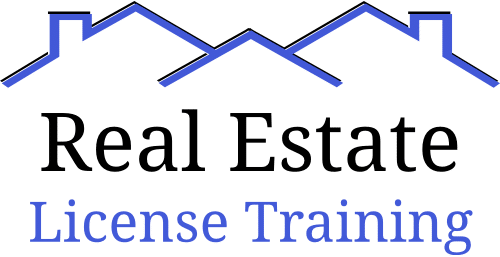Launching a real estate career without a plan is like going to war without a weapon.
Having a plan in place, on the other hand, prepares you for the challenges ahead and helps you make wise decisions.
Think of your real estate business plan as a roadmap to your success. Without it, you may be lost and unable to set a clear direction for achieving your objectives.
But how do you create a new real estate agent business plan?
Here, we will give you a comprehensive guide to creating a new real estate agent business plan. We’ll also mention the importance of one.
So let’s get straight into it!
Why Do You Need A Real Estate Business Plan?

A plan is not always a guarantee for success, but it serves as a tool to help guide your decisions. It articulates your vision, provides clarity on different aspects of your business, reduces risks, and identifies gaps in your strategies.
Most importantly, a business plan reminds you of your whys and goals, as well as motivates you to work on them.
So you can see why it’s important to have a business plan.
The 7 Steps to Creating a New Real Estate Agent Business Plan
These are the steps to create a new real estate agent business plan:
- Write an executive summary
- Write a mission statement
- List your SMART goals
- Perform a SWOT analysis
- Know your target clients and competitors
- Develop marketing and lead generation strategies
- Evaluate your business plan
Let’s get into the details.
1. Write an executive summary
An executive summary briefly outlines your real estate purpose and goals. It is usually one to two pages long, clear, and concise enough to give the reader a quick grasp of the elements of your business plan. Its contents include but are not limited to the following:
- A short description of your real estate properties
- A description of your target market
- A description of your competitors and the advantages you have over them
- A financial summary
- An overview of your business’s growth potential
2. Write a mission statement
Your mission statement should support your real estate goals. If you follow it, you will achieve your vision. It should be short and specific and must include the following:
- What you can offer potential buyers
- The overall value of your service
- Who will benefit from your service
3. List your SMART Goals
SMART stands for specific, measurable, attainable, realistic, and timely. Setting goals with these characteristics will encourage you to stick to them until you reach them.
This is an example of a SMART goal: “Sell 20 houses in the Bay Area in the first quarter.”
4. Perform a SWOT Analysis
SWOT stands for strengths, weaknesses, opportunities, and threats. SWOT analysis is a framework that evaluates your competitive position based on the four factors. It is a helpful tool in developing a strategic plan.
Strengths and weaknesses pertain to internal factors, whereas opportunities and threats are external.
Below are a few examples:
| Strength: loyal customer base | Weakness: inadequate supply chain |
| Opportunity: market share | Threat: increased competition |
5. Know your target clients and competitors
Identifying your market niche is an essential part of your real estate business plan. Knowing your target clients will help you build realistic and feasible marketing plans. Determining a specific audience also lets you save money, time, and effort.
Below are some questions you need to ask yourself when identifying your target market:
- What is the demographic of your ideal clients? (Age, location, and status.)
- What do they do for a living, and what is their household income?
- What are their defining characteristics?
- What are their preferred modes of communication? (Phone call, e-mail, text message, or via an instant messaging application)
- Which businesses do they currently use for their real estate transactions? Who are your competitors?
Once you know your competition, It is worth asking yourself these questions:
- What are your competitors doing better?
- What channels do they use for their marketing campaigns?
- How well do these channels work for them?
- Are there any methods your competitors have not tapped that may potentially work to your advantage?
Knowing your competition will allow you to strategize plans on how you can outperform them.
6. Develop marketing and lead-generation strategies
The next step is developing your strategies.
Create a detailed action plan on how you will promote yourself to your target clients.
They can be a combination of traditional and contemporary methods. Also, you can devise a strategy based on what you’ve previously learned from studying your competitors.
For example, when building an online presence, think of the lead-generation techniques that you plan to integrate into your website or social media page.
Will you be focusing on outbound marketing? Or, will you take on a more organic approach, such as SEO (search engine optimization)?
Your lead generation methods may change, but including initial strategies in your business plan will help you identify which ones work and which ones don’t.
7. Evaluate your business plan
Finally, your business plan shouldn’t be static. The industry evolves, the market fluctuates, and so should your plan. It should stay relevant and be able to adapt to constant changes.
Conclusion
Now that you know how to create a new real estate agent business plan, it’s time to get down to writing it. Any more time you spend without a concrete business plan could mean increased risks and wasted opportunities.
Don’t drag it out. The sooner you finish your business plan, the better. Remember, the old saying holds true; if you fail to plan, you plan to fail.

